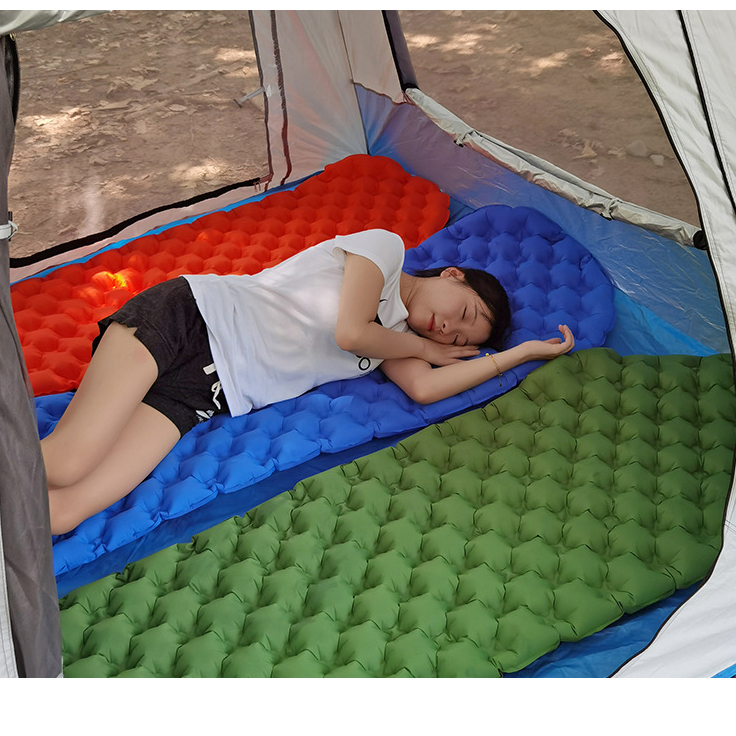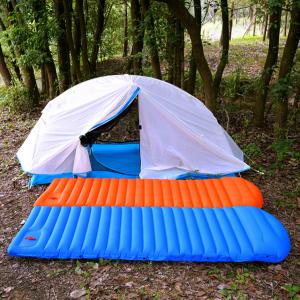News Center+ 查看更多
News Center
+ 查看更多
Sleep Soundly: Factors to Consider When Choosing a Camping Mattress+ 查看更多
Sleep Soundly: Factors to Consider When Choosing a Camping Mattress
+ 查看更多
Date:2023-12-16
Selecting the right camping mattress is crucial for a restful night's sleep in the great outdoors. Various factors, including materials, insulation, comfort, portability, and durability, significantly influence the suitability of a camping mattress for different environments and personal preferences.

1. Material Composition
Camping mattresses come in various materials such as open-cell foam, closed-cell foam, self-inflating foam, air-filled chambers, or hybrid constructions. Each material offers distinct advantages. Open-cell foam provides comfort but can absorb moisture. Closed-cell foam offers durability and insulation but may sacrifice comfort. Self-inflating mattresses strike a balance between comfort and packability. Air-filled chambers allow adjustable firmness.
2. Insulation and R-Value
Insulation is critical for warmth, especially in cooler climates. The R-value measures a mattress's thermal resistance. Higher R-values indicate better insulation. Consider mattresses with higher R-Values for cold weather camping to prevent heat loss to the ground, ensuring a cosy night's sleep.
3. Thickness and Comfort
The thickness of a camping mattress impacts comfort. Thicker mattresses generally provide more cushioning and support. However, balance the thickness with considerations of weight and packability, especially for backpacking. Ergonomic designs and surface textures can also enhance comfort during sleep.
4. Portability and Packability
Campers often prioritize portability and packability. Lightweight and compact mattresses are favourable for backpacking or hiking. Look for mattresses that deflate and pack down to a small size, fitting into backpacks or storage spaces without adding excessive weight.
5. Durability and Longevity
A durable camping mattress that withstands rugged outdoor conditions. Consider mattresses constructed from robust materials and reinforced seams. Evaluate user reviews to assess durability over extended use and varied terrains.
6. Inflation and Deflation Mechanisms
Different mattresses feature varied inflation and deflation mechanisms. Some are self-inflating, requiring minimal effort to set up. Others may need manual inflation with a pump or by mouth. Quick deflation valves expedite packing up.
7. Environmental Impact and Sustainability
For eco-conscious campers, consider mattresses made from eco-friendly materials or those manufactured using sustainable practices. Verify certifications or brand commitments to environmentally responsible production methods.
8. User Reviews and Recommendations
User reviews offer valuable insights into a mattress's real-world performance. Consider experiences shared by fellow campers regarding comfort, insulation, durability, and overall satisfaction to inform your choice.
Conclusion
Choosing the right camping mattress entails a careful evaluation of material composition, insulation, comfort, portability, and durability. By considering these factors and understanding user experiences, campers can invest in a mattress that ensures restful and rejuvenating sleep during outdoor adventures.

